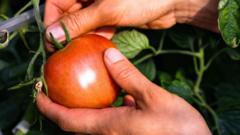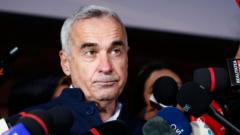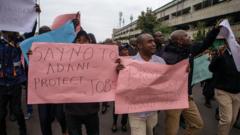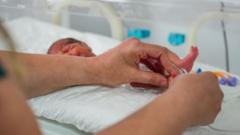The World Beekeeping Awards has decided to omit the honey category due to issues of fraudulent practices in honey production, as a significant percentage of honey products have been deemed suspect following investigations. The organization is working on developing testing methods to combat this growing problem.
Global Honey Fraud Prompts Cancellation of World Beekeeping Awards Honey Prize

Global Honey Fraud Prompts Cancellation of World Beekeeping Awards Honey Prize
The World Beekeeping Awards will not award prizes for honey in 2024, citing rising concerns over fraud and adulteration in the honey supply chain.
The World Beekeeping Awards have announced a groundbreaking decision to forgo any prizes for honey in the upcoming 2024 celebration. This marks the first occasion that honey will be excluded from the awards, a beloved fixture in the event's tradition. The International Federation of Beekeepers’ Associations, known as Apimondia, stated that this decision was driven by serious concerns over the integrity of the global honey supply chain, emphasizing an inability to ensure comprehensive testing for adulteration.
The change stems from alarming findings in recent years, where events highlighted that conducting adequate testing for honey authenticity was unfeasible. A significant investigation conducted by the European Commission revealed in March 2023 that an astonishing 46% of sampled honey products were suspected of fraud, with all ten samples collected from the UK being implicated in this troubling statistic. The fraudulent activity often involves blending honey with cheaper sugar syrups to increase profit margins.
In an effort to combat this widespread issue, scientists from Cranfield University announced a discovery in August 2023 that could revolutionize honey testing. Their research led by Dr. Anastasiadi developed a method to detect adulterated honey without having to open the jar, making the process less invasive and more feasible for quality control.
Despite the absence of honey prizes, Apimondia remains committed to highlighting honey through alternative means. Looking ahead to the future, they plan to introduce a 'honey map' promoting distinct regional honey varieties, particularly those from Scandinavia. This initiative aims to educate consumers about the unique climates and geographical influences that shape the flavors of locally sourced honey.
Jeff Pettis, president of Apimondia, expressed the federation's ongoing efforts to enhance testing processes and assured that local honey tends to be less prone to adulteration. In response to these developments, a spokesperson from the Department for Environment, Food and Rural Affairs (Defra) affirmed their robust stance against food fraud, collaborating with enforcement authorities to assure that honey available in the UK adheres to high standards and remains free from questionable practices.




















